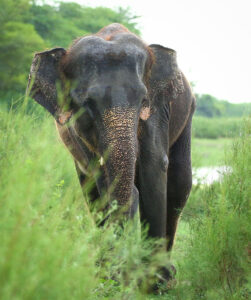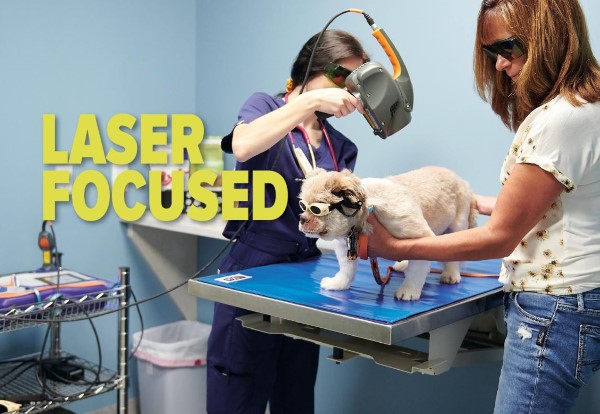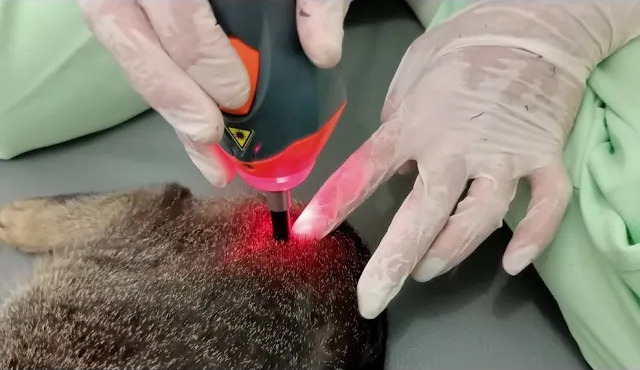Founded in 1995, the Wildlife SOS organization is devoted to a comprehensive approach to saving India’s Wildlife. Through conversation, welfare and research efforts, Asian elephants are one species at the center of this non-profit’s work. By incorporating laser therapy and other innovative techniques into their efforts to care for this endangered species, Wildlife SOS improves their quality of life so elephants can thrive within their sanctuaries.
In line with their mission to rescue and rehabilitate elephants from abuse and illegal captivity, Wildlife SOS opened India’s first elephant hospital in 2018—their third location dedicated exclusively to Asian elephants.

Veterinarians and staff at the elephant hospital actively pursue new veterinary techniques to supply the highest quality of care to their animals. Especially difficult cases like Zara, a 21-year old handicapped elephant suffering from severe osteoarthritis, ankylosis, abnormal forelimb conformation, stunted body conformation, and several wounds.
When Zara arrived at Wildlife SOS in June of 2020, she was extremely underweight with deteriorating health as a result of neglect and poor nutrition. Her situation requires long-term care and a specialized treatment plan including laser therapy for her forelimbs to accelerate healing at the cellular level. Since her arrival, the Wildlife SOS has reported that Zara is slowly adjusting to her surroundings and her physical conditions are gradually improving.
Wildlife SOS isn’t the only non-profit improving elephant care with laser therapy technology. Following their mission to provide individualized veterinary attention to their residents, The Elephant Sanctuary in Hohenwald, Tennessee has been incorporating MLS® Laser Therapy into elephant care procedures since 2015.
Most notably, 67-year-old Asian elephant Shirley suffers from occasional cutaneous pressure wounds in her shoulders, hips and facial crest. After incorporating MLS into her treatment plan, animal care staff noticed a significant decrease in healing time compared to her prior nearly identical wounds that were not treated with MLS.
Read our case study about Shirley and the Elephant Sanctuary.
Due to its ability to treat pain and inflammation associated with a wide range of conditions across a wide range of animal species, veterinarians across the world are adopting MLS as a treatment option to improve their quality of care. To learn more about how your patients and your practice could benefit from MLS Laser Therapy, request more information today.



